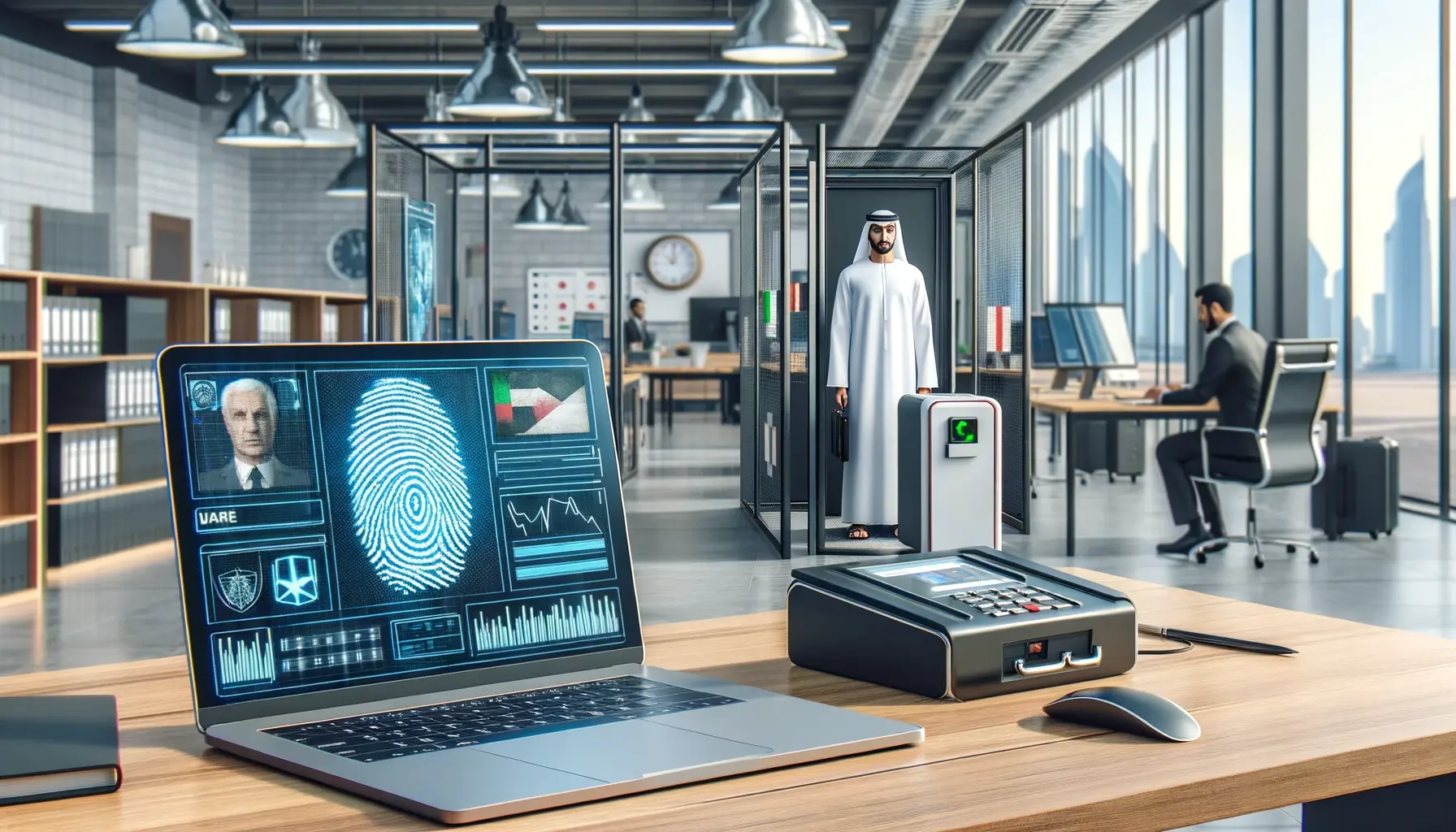Obtaining residency in the United Arab Emirates (UAE), particularly in Dubai, entails a series of procedural steps, among which the biometric exam is pivotal. This step is not only crucial for ensuring a smooth residency application process but also plays a significant role in maintaining your safety and comfort during your stay in the UAE.
Key takeaways
In this blog, you will find details about:
1. Why is biometric necessary in the UAE?
2.EIDA centers and typing offices in the UAE
3.Timings of different biometric zones
Understanding Biometrics in the Context of UAE Residency
Biometrics refers to the scientific methods used to measure and analyze physical and biological data. In the context of UAE residency:
- Definition and Purpose: Biometrics in Dubai involves collecting unique physical characteristics of an individual. It’s a critical component used for verifying identity, enhancing security, and controlling access to personal information and sensitive files.
- Components of the Biometric Exam: The biometric procedure in Dubai typically includes:
- Eye Scan: A non-intrusive method to capture the unique patterns of your iris.
- Fingerprinting: Scanning all fingers of both hands to record distinctive fingerprint patterns.
The Biometric Procedure in Dubai
The process is streamlined and efficient, designed to respect your time and privacy:
- Location: The biometric exams are conducted at designated biometric centers across Dubai, equipped with the latest technology to ensure accurate and secure data collection.
- Duration: Generally, the entire procedure takes up to one hour, although this may vary depending on the number of applicants and the specific center.
Preparing for Your Biometric Exam
To ensure a hassle-free experience during your biometric exam:
- Appointment Booking: It’s advisable to book your appointment in advance to avoid long waiting times.
- Documentation: Bring necessary identification documents as specified by the residency application guidelines.
- Personal Preparation: Ensure your fingers are clean and free from any form of temporary decorations like henna, as this can interfere with fingerprint scanning.
After the Biometric Exam
- Data Integration: Your biometric data will be integrated into the UAE’s residency database, forming an essential part of your residency profile.
- Privacy and Security: The UAE takes the privacy and security of biometric data seriously, employing advanced measures to protect your information.
The biometric exam is a testament to the UAE’s commitment to advanced security measures and efficient administrative processes. Understanding and preparing for this crucial step can significantly streamline your journey to becoming a resident in the dynamic and welcoming environment of Dubai.

Why Do You Need Biometric Screening in UAE Residency
Biometric authentication plays a crucial role in the residency process in the United Arab Emirates (UAE), offering a secure and reliable method of identification. This advanced technology is integral to various stages of the residency application and renewal process.
The Purpose of Biometric Screening
Biometric screening is not just a formality; it serves several key functions:
- Reliable Identification: Biometrics offer a unique and almost foolproof way of identifying individuals, crucial in a world where security and identity verification are paramount.
- Access Control: It enables controlled access to personal data and sensitive files, ensuring privacy and data protection.
- Residency Applications: Biometric screenings are mandatory for applications like temporary resident visas, study permits, or work permits. These need renewal every 10 years.
- Permanent Residence Visa: For permanent residency applications, biometrics must be updated with each application, ensuring up-to-date records.
Health and Wellness Insights
The biometric screenings aren’t just about identity; they also include health checks:
- Comprehensive Tests: These screenings involve a series of tests that provide insights into an individual’s overall health and well-being.
Process Involved In Biometric Screening
Understanding when to undergo biometric screening is crucial in the residency process:
- Stage of Process: The requirement for biometrics arises at different stages, depending on the specific type of residency or visa application.
- Post-Medical Examination: Typically, the biometric screening is scheduled after the medical examination. Once deemed ‘fit’, you’ll be appointed for biometrics.
- Integration with Emirates Identity Card: The biometric data, including fingerprints and retina scans, are used for the preparation of your Emirates Identity Card.
- Swift Processing: After completing the medical exam, the biometric appointment is usually set within 72 hours. This expedited process ensures that you receive your Emirates ID card within 3 to 5 days after completing your biometric scan.
F&Q
Yes. All data and examination is secured and protected using latest technology.
The typing offices and EIDA centers are located in Sharjah, Dubai, Abu Dhabi, Dubai, Ajman, Ras Al Khaimah, and Umm Al Quwain. All centers have different office timings.
Yes. Certain health examinations may be required during the process.
The entire process happen around a week or ten days subjected to the examination dates and other processes.
Yes. You can book your slot online.
